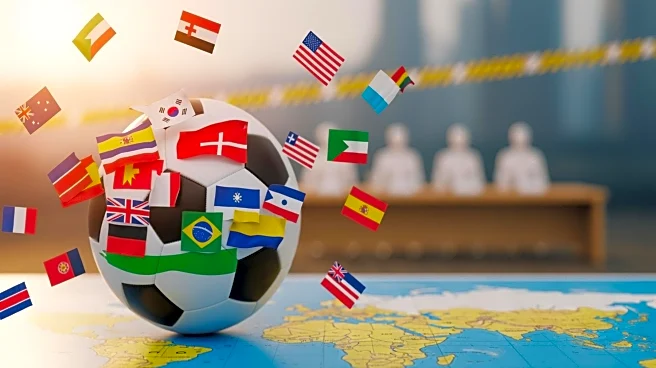What's Happening?
The upcoming World Cup, set to be co-hosted by the United States, Canada, and Mexico, will feature an expanded format with 48 teams, up from the usual 32. This expansion allows countries like Cape Verde,
Uzbekistan, and Jordan to make their debut on the world stage. However, the event is not without its challenges. Visa restrictions and immigration policies in the United States pose significant hurdles for fans from certain countries, particularly those affected by travel bans. The logistical complexities of hosting such a large event are compounded by political tensions, as highlighted by President Trump's previous statements about potentially moving the tournament from cities he deems unsafe.
Why It's Important?
The expansion of the World Cup to include more teams is a significant development in international sports, offering smaller nations a chance to compete on a global platform. This inclusivity can foster international goodwill and cultural exchange. However, the visa and immigration challenges underscore ongoing political and bureaucratic issues in the U.S., which could affect the tournament's accessibility and success. The event's success is crucial for the host countries, as it promises economic benefits through tourism and global exposure. Yet, the political climate and logistical hurdles could impact these potential gains.
What's Next?
As the tournament approaches, host cities and organizers will need to address the visa and immigration challenges to ensure smooth entry for fans and participants. The political landscape, particularly any changes in U.S. immigration policy, will be closely monitored. Additionally, the performance of the U.S. men's team, considered a 'golden generation,' will be under scrutiny, with expectations to advance beyond the quarterfinals. The interactions between FIFA, local governments, and federal authorities will be pivotal in shaping the tournament's execution.









